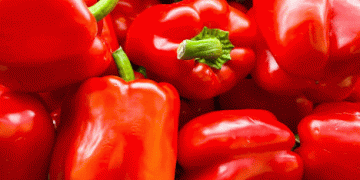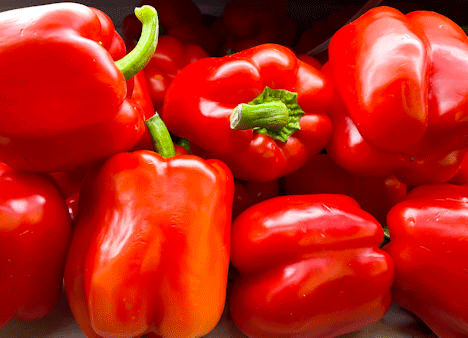According to ASAJA Almería, the upcoming season will see notable changes in the cultivation areas for various crops:
- Peppers: The planting area for peppers is projected to be 12,675 hectares, marking a 1% increase from the previous season. The California variety remains dominant, though the Palermo variety is gradually gaining ground.
- Tomatoes: Tomato cultivation is set to cover 8,700 hectares, reflecting a 3% decrease from last season. Despite this reduction, tomatoes remain a key crop. Notably, plantings of pear tomatoes and loose varieties are on the rise.
- Cucumbers: The area dedicated to cucumbers has grown moderately, reaching 6,320 hectares. This stable growth reflects ongoing demand and production stability.
- Zucchinis: Zucchini cultivation has decreased by 6%, with an estimated area of 7,733 hectares. This reduction is attributed to viral infections that affected the previous season’s crops.
- Eggplants: Eggplant cultivation remains stable at 2,290 hectares, maintaining its consistent presence in the market.
Strategic Early Planting
Adoración Blanque, President of ASAJA Almería, emphasizes the importance of adjusting harvest cycles to leverage market prices more effectively. Early planting of peppers and tomatoes is a key strategy to achieve this goal. By advancing planting schedules, growers aim to harvest their crops ahead of the peak season, which can lead to higher prices due to reduced competition and improved product quality.
Market Implications and Opportunities
The decision to plant early carries significant implications for both producers and the market. Early harvests can provide growers with a competitive edge, allowing them to capitalize on higher prices before other regions flood the market. This approach also aligns with the broader trend of optimizing harvest timing to maximize profitability.
However, growers must also manage the risks associated with early planting, including potential exposure to adverse weather conditions and pest pressures. To mitigate these risks, it is crucial to implement robust crop management practices and stay informed about weather forecasts and pest outbreaks.
The early planting strategy adopted by Almería’s growers represents a proactive approach to navigating the complexities of the horticultural market. By adjusting planting schedules and focusing on high-value crops like peppers and tomatoes, producers aim to secure better prices and enhance their market positions. As the 2024/25 season unfolds, the success of this strategy will depend on effective management and adaptability to market conditions.
Farmers, agronomists, and agricultural engineers should closely monitor these developments and consider similar strategies to optimize their own production and marketing efforts. Staying ahead of market trends and adapting to changing conditions will be key to achieving long-term success in the horticultural sector.































